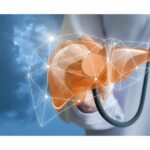Are you concerned about the health of your liver?
Discover the 8 best ways to prevent alcohol-related liver damage. By practicing moderation, maintaining a healthy diet, exercising regularly, staying hydrated, avoiding binge drinking, limiting alcohol intake, fostering a supportive social environment, and scheduling regular liver check-ups, you can safeguard your liver and minimize the risk of alcohol-related harm.
Take control of your liver health and make informed choices today.
Moderation
To prevent alcohol-related liver damage, it's crucial that you consistently drink alcohol in moderation. Maintaining a healthy lifestyle and practicing responsible drinking are key to safeguarding your liver health. Moderation means consuming alcohol in a controlled and balanced manner, avoiding excessive or binge drinking.
Drinking in moderation has several benefits for your overall health. It reduces the risk of developing various liver diseases, including fatty liver disease, alcoholic hepatitis, and cirrhosis. Studies have shown that moderate alcohol consumption can even have some cardiovascular benefits, such as improving heart health and reducing the risk of heart disease.
So, what does moderation actually mean? For men, it typically means consuming up to two standard drinks per day, while for women, it's up to one standard drink per day. It's important to note that this refers to the average daily consumption and not accumulating alcohol intake over several days.
In addition to moderating your alcohol consumption, it's crucial to adopt a healthy lifestyle. This includes maintaining a balanced diet, engaging in regular physical activity, and getting enough sleep. These lifestyle choices can significantly reduce the risk of alcohol-related liver damage and promote overall well-being.
Healthy Diet
To prevent alcohol-related liver damage, it's crucial to pay attention to your diet.
The nutritional impact on the liver is significant, as certain nutrients can help protect and repair liver cells.
Nutritional Impact on Liver
Eating a healthy diet plays a vital role in protecting your liver from alcohol-related damage. When it comes to liver health, healthy eating should be a priority. A well-balanced diet that includes a variety of nutrient-rich foods can help support the liver's function and minimize the risk of alcohol-related liver damage.
First and foremost, it's important to limit your alcohol intake. Excessive alcohol consumption is a major contributor to liver damage.
Additionally, incorporating plenty of fruits and vegetables into your diet provides essential vitamins, minerals, and antioxidants that promote liver health. Foods high in fiber, such as whole grains and legumes, also aid in digestion and help remove toxins from the body.
Lastly, it's crucial to avoid processed foods, sugary drinks, and excessive salt intake, as they can contribute to liver inflammation and damage.
Dietary Habits and Liver
Include a variety of nutrient-rich foods in your diet to maintain a healthy liver and prevent alcohol-related liver damage. Your dietary habits play a crucial role in supporting liver function and minimizing the potential harm caused by alcohol consumption.
Here are five key dietary tips to keep in mind:
- Consume an abundance of fruits and vegetables, which are packed with antioxidants and essential nutrients that promote liver health.
- Incorporate whole grains into your meals, such as brown rice, quinoa, and whole wheat bread, as they provide fiber and important vitamins and minerals.
- Opt for lean sources of protein, like fish, poultry, and legumes, which are easier for the liver to process.
- Limit your intake of saturated fats and trans fats, found in fried foods, processed snacks, and fatty cuts of meat, as they can contribute to liver inflammation.
- Stay hydrated by drinking sufficient water, as it helps flush out toxins and supports overall liver function.
Regular Exercise
One effective way to prevent alcohol-related liver damage is by incorporating regular exercise into your lifestyle. Engaging in regular physical activity has numerous benefits for your overall health, including the health of your liver. When you exercise, your body increases blood flow, which helps to flush out toxins and reduces the risk of liver damage caused by alcohol consumption.
Regular exercise has been shown to have a protective effect on the liver. It helps to reduce inflammation and oxidative stress, both of which can contribute to liver damage. Additionally, exercise can improve insulin sensitivity, which is important for maintaining a healthy liver. It also aids in weight management, as excess weight can put strain on the liver and increase the risk of liver disease.
To incorporate exercise into your routine, aim for at least 150 minutes of moderate-intensity aerobic activity or 75 minutes of vigorous-intensity aerobic activity each week. You can choose activities that you enjoy, such as walking, jogging, cycling, swimming, or dancing. It's important to start slowly and gradually increase the intensity and duration of your workouts to avoid injury.
Hydration
To prevent alcohol-related liver damage, it's important to maintain proper hydration. When you consume alcohol, your body becomes dehydrated, leading to various health complications. Here are some benefits of staying hydrated and the importance of water in preventing alcohol-related liver damage:
- Water helps flush out toxins: Drinking enough water helps your liver function properly by aiding in the removal of toxins from your body. This reduces the burden on your liver and reduces the risk of damage.
- Hydration supports liver regeneration: When you stay hydrated, your liver is better able to regenerate and repair itself. This can help prevent long-term liver damage caused by excessive alcohol consumption.
- Water promotes overall health: Proper hydration is essential for the overall health of your body. It helps maintain a healthy weight, supports digestion, and improves your immune system, all of which contribute to a healthy liver.
- Hydration reduces alcohol cravings: Often, we mistake thirst for hunger or alcohol cravings. By staying hydrated, you can better differentiate between these signals and reduce the temptation to consume alcohol excessively.
- Water helps prevent hangovers: Alcohol dehydrates your body, leading to hangovers. By drinking plenty of water before, during, and after consuming alcohol, you can minimize the severity of hangovers and reduce the strain on your liver.
Avoid Binge Drinking
To prevent alcohol-related liver damage, it's crucial to avoid binge drinking. Binge drinking can have short-term effects on the liver, such as inflammation and fatty liver disease.
However, the long-term consequences can be even more severe, leading to liver fibrosis, cirrhosis, and even liver failure.
Additionally, binge drinking is associated with various health risks, including increased risk of accidents, injuries, and other alcohol-related diseases.
Short-Term Liver Effects
Avoiding binge drinking is crucial to preventing short-term liver damage caused by alcohol consumption. Binge drinking refers to consuming a large amount of alcohol within a short period. Here are some important reasons why you should avoid binge drinking:
- Liver inflammation: Binge drinking can lead to acute alcoholic hepatitis, causing liver inflammation and swelling.
- Impaired liver function: Excessive alcohol intake disrupts the liver's ability to process toxins and produce enzymes, impairing its overall function.
- Increased risk of liver injury: Binge drinking raises the chances of liver injury, such as liver cell damage or fatty liver disease.
- Altered blood flow: Alcohol can affect blood flow to the liver, leading to oxygen deprivation and potential tissue damage.
- Elevated liver enzymes: Binge drinking can elevate liver enzyme levels, indicating liver damage and decreased liver function.
To protect your liver, it's essential to moderate your alcohol consumption and avoid engaging in binge drinking episodes.
Long-Term Liver Damage
To prevent long-term liver damage, you should refrain from engaging in binge drinking. The health of your liver is directly affected by the amount and frequency of alcohol consumption.
Binge drinking refers to consuming excessive amounts of alcohol within a short period of time, typically leading to a blood alcohol concentration of 0.08% or higher. This pattern of heavy drinking can have serious consequences for your liver and overall health.
Chronic alcohol consumption can lead to liver inflammation, fatty liver disease, alcoholic hepatitis, and ultimately, cirrhosis. These conditions can significantly impact liver function and increase the risk of liver failure, liver cancer, and even death.
It's crucial to prioritize liver health by avoiding binge drinking and practicing moderation when consuming alcohol.
Health Risks Associated
Refrain from engaging in binge drinking to avoid the health risks associated with excessive alcohol consumption. Binge drinking, defined as consuming large amounts of alcohol in a short period of time, can have serious consequences for your health.
Here are some of the health risks you expose yourself to when you engage in binge drinking:
- Increased risk of liver damage: Excessive alcohol consumption can lead to liver inflammation, fatty liver disease, and even liver cirrhosis.
- Higher chances of developing cardiovascular problems: Binge drinking can raise your blood pressure, increase your risk of heart disease, and contribute to the development of arrhythmias.
- Weakened immune system: Alcohol impairs immune function, making you more susceptible to infections and diseases.
- Mental health issues: Binge drinking is associated with an increased risk of depression, anxiety, and other mental health disorders.
- Accidents and injuries: Engaging in binge drinking puts you at a higher risk of accidents, falls, and other injuries.
Limit Alcohol Intake
Cutting back on alcohol consumption is essential for preventing alcohol-related liver damage. Maintaining a healthy lifestyle and taking care of your liver health should be a priority. The liver plays a crucial role in detoxifying the body, and excessive alcohol intake can overwhelm its ability to function properly. By limiting your alcohol intake, you can reduce the risk of developing liver diseases such as fatty liver, alcoholic hepatitis, and cirrhosis.
The recommended alcohol limits for healthy adults are moderate drinking for women, which is up to one drink per day, and for men, up to two drinks per day. It's important to note that these limits aren't a daily average, but rather the maximum amount consumed on any single day. It's also advisable to have alcohol-free days throughout the week to give your liver a break and allow it to heal.
If you find it challenging to cut back on alcohol, there are strategies that can help. Start by setting specific goals and gradually reducing your intake. Seek support from friends, family, or a healthcare professional. Engaging in activities that don't involve alcohol, such as exercising, hobbies, or spending time with loved ones, can also help distract from the urge to drink.
Supportive Social Environment
Create a network of supportive friends and family who encourage and engage in alcohol-free activities with you. Having a supportive social environment can play a crucial role in preventing alcohol-related liver damage. Here are some reasons why supportive social groups and lifestyle changes are important:
- Emotional support: Surrounding yourself with positive and understanding individuals who support your decision to avoid alcohol can provide emotional support. They can help you stay motivated and provide a listening ear when you face challenges.
- Healthy alternatives: Engaging in alcohol-free activities with your supportive social group can help you find healthy alternatives to drinking. This can include participating in sports, going for hikes, trying new hobbies, or simply enjoying quality time together without alcohol.
- Accountability: Being part of a supportive social environment can help hold you accountable for your decisions. Your friends and family can remind you of your goals and provide encouragement to stick to them.
- Reduced temptation: When you're surrounded by individuals who don't drink or support your decision to abstain from alcohol, the temptation to drink may be reduced. This can make it easier for you to resist the urge to consume alcohol.
- Positive lifestyle changes: Being part of a supportive social group can inspire you to make positive lifestyle changes beyond abstaining from alcohol. You can encourage each other to exercise regularly, eat a healthy diet, and engage in other habits that promote overall well-being.
Creating a network of supportive friends and family who engage in alcohol-free activities with you can greatly contribute to preventing alcohol-related liver damage. Having emotional support, healthy alternatives, accountability, reduced temptation, and positive lifestyle changes can help you maintain an alcohol-free lifestyle and protect your liver health.
Regular Liver Check-Ups
To ensure the health of your liver and prevent alcohol-related damage, it's essential to schedule regular check-ups with a healthcare professional. Regular liver check-ups are crucial in monitoring your liver function and detecting any potential issues early on.
Alcohol consumption can have a significant impact on your liver health. Excessive and prolonged alcohol intake can lead to liver inflammation, scarring (cirrhosis), and even liver failure. However, even moderate alcohol consumption can have detrimental effects on your liver over time.
During a liver check-up, your healthcare professional will assess your liver function through various tests. These may include blood tests to measure liver enzymes, such as alanine transaminase (ALT) and aspartate transaminase (AST), as well as evaluating other liver function markers like bilirubin and albumin levels. Imaging studies, such as ultrasound or MRI, may also be used to visualize the liver and identify any abnormalities.
By scheduling regular liver check-ups, you can closely monitor the health of your liver and identify any potential problems early on. This allows for prompt intervention and appropriate management strategies to prevent further damage.
- Overcoming Emotional Intimacy Challenges With Alcohol Misuse - November 18, 2023
- Overcoming Alcohol's Impact on Emotional Intimacy: 13 Essential Tips - November 18, 2023
- 6 Ways to Overcome Emotional Intimacy Challenges With Alcohol - November 18, 2023









